The Museum of the Macedonian Struggle
Located in a grand neoclassical building set along the banks of the Vardar River, the Museum of the Macedonian Struggle opened its doors on September 8th, 2011: the twentieth anniversary of the country’s independence from Yugoslavia.
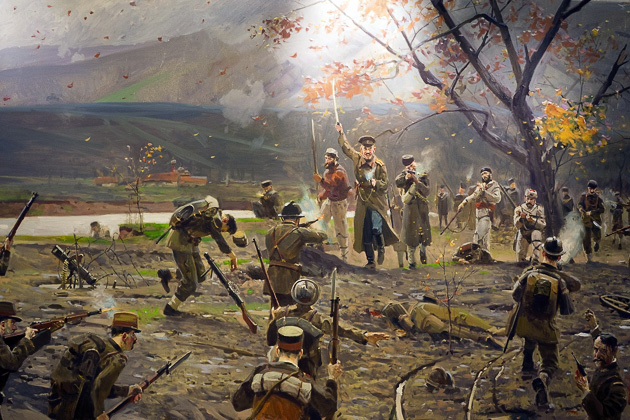
The Macedonian Struggle, as we learned during our guided tour through the museum, has been as much about establishing a national identity as actual independence. This is a land which has been conquered, traded and divided for most of civilized history. Macedonia has belonged to Bulgaria, the Ottomans and the Serbs, among others, and each new master has had its own definition of what exactly a “Macedonian” is. “They’re southern Serbs.” “No, they’re western Bulgarians.” But nobody ever asked the Macedonians themselves.
So they began to make themselves heard. During the waning years of the Ottoman Empire, the argument for a unique Macedonian identity began to appear for the first time. Not Bulgarian, not Serb, but Macedonian. Articles like Petko Slavejkov’s The Macedonian Question and books like Krste Misirkov’s On Macedonian Matters were published. The idea of an independent state was floated, and the existence of a distinct Macedonian language was recognized — and not a dialect of Bulgarian, as it had previously been classified.
The flowering of a long-dormant national identity is a complex subject, and we couldn’t wait to see how the Museum for the Macedonian Struggle would tackle it. The answer? With wax figures. Loads and loads of wax figures, representing the heroes and villains of Macedonian history. Visits to the museum are only permitted as part of a guided tour, and though they’re supposed to last for an hour, ours was well over two. We wandered through a dozen cavernous rooms filled with maps, documents and gory scenes of torture, and listened to our guide’s detailed anecdotes about the uprisings, atrocities, terrorism and hope which defined the movement.
Besides wax figures, the museum is also heavy in propaganda. This isn’t a sober, nuanced handling of “The Macedonian Question,” but a rousing call to national pride. “We are the good guys, those are the bad guys.” But really, such blind patriotism isn’t entirely surprising. Freed at last to speak for itself, Macedonia has decided to shout. Who can blame it?
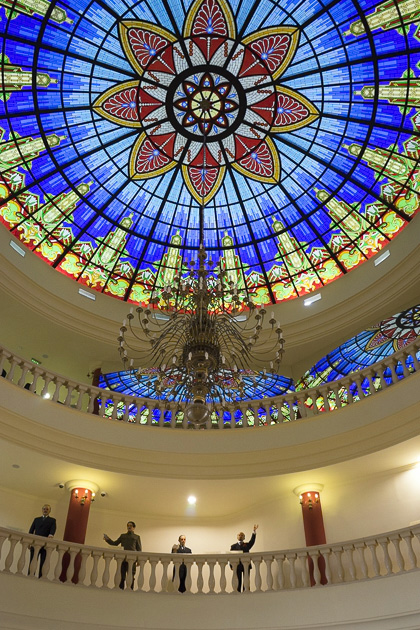
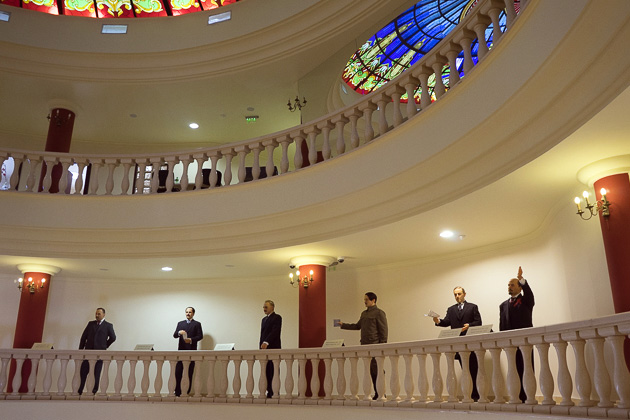
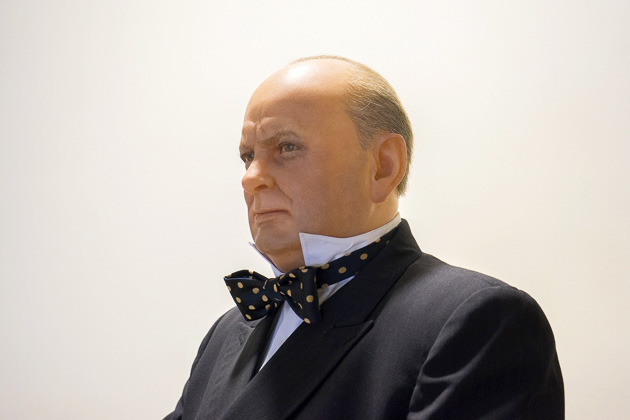
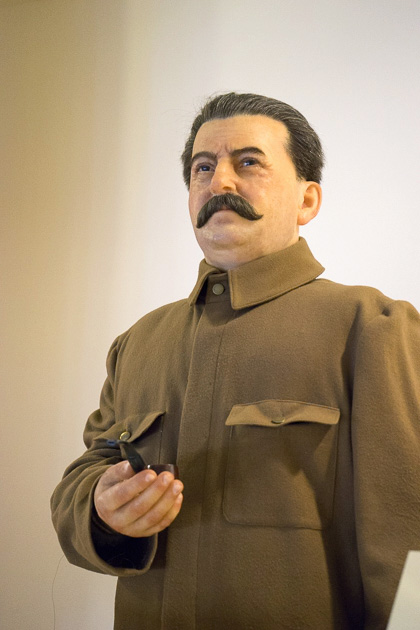
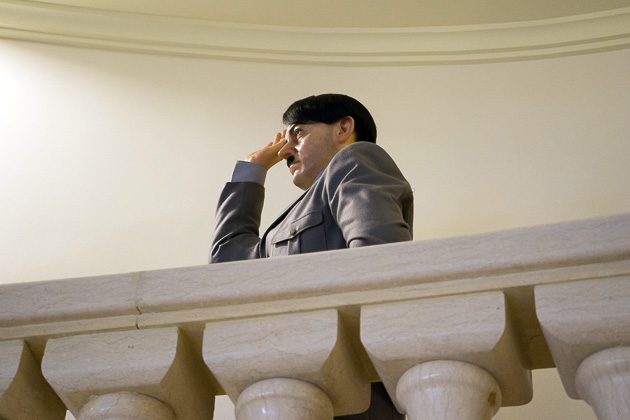

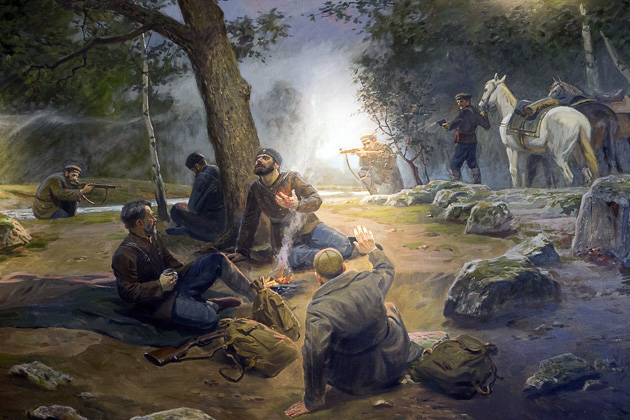
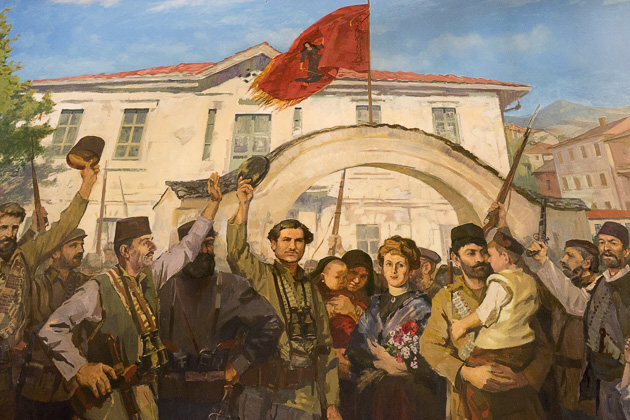
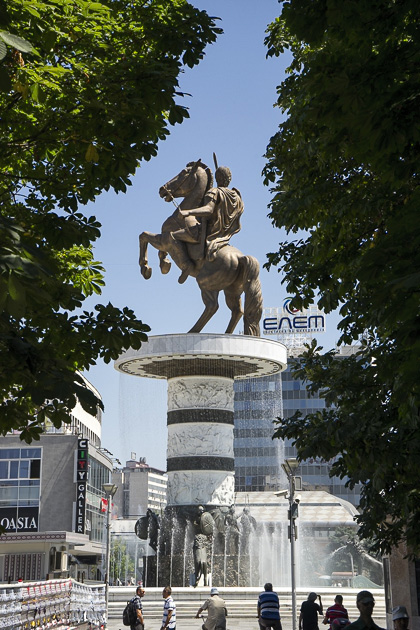
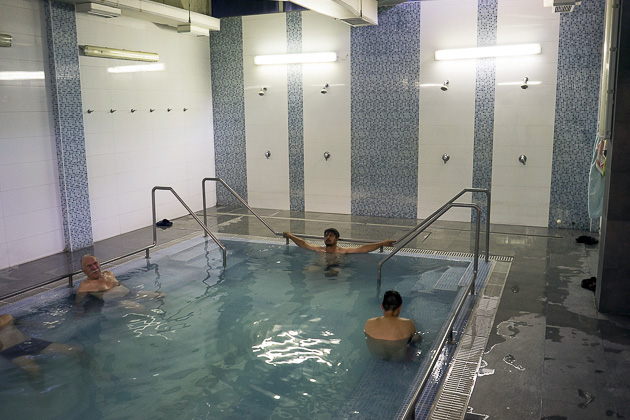
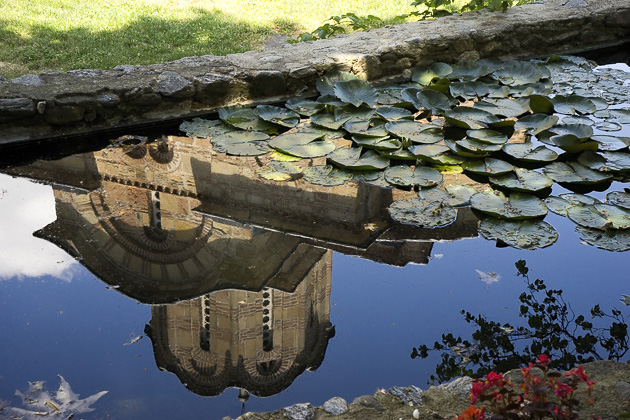

Pingback: The Holocaust Museum of Macedonia | For 91 Days in Macedonia – Travel Blog